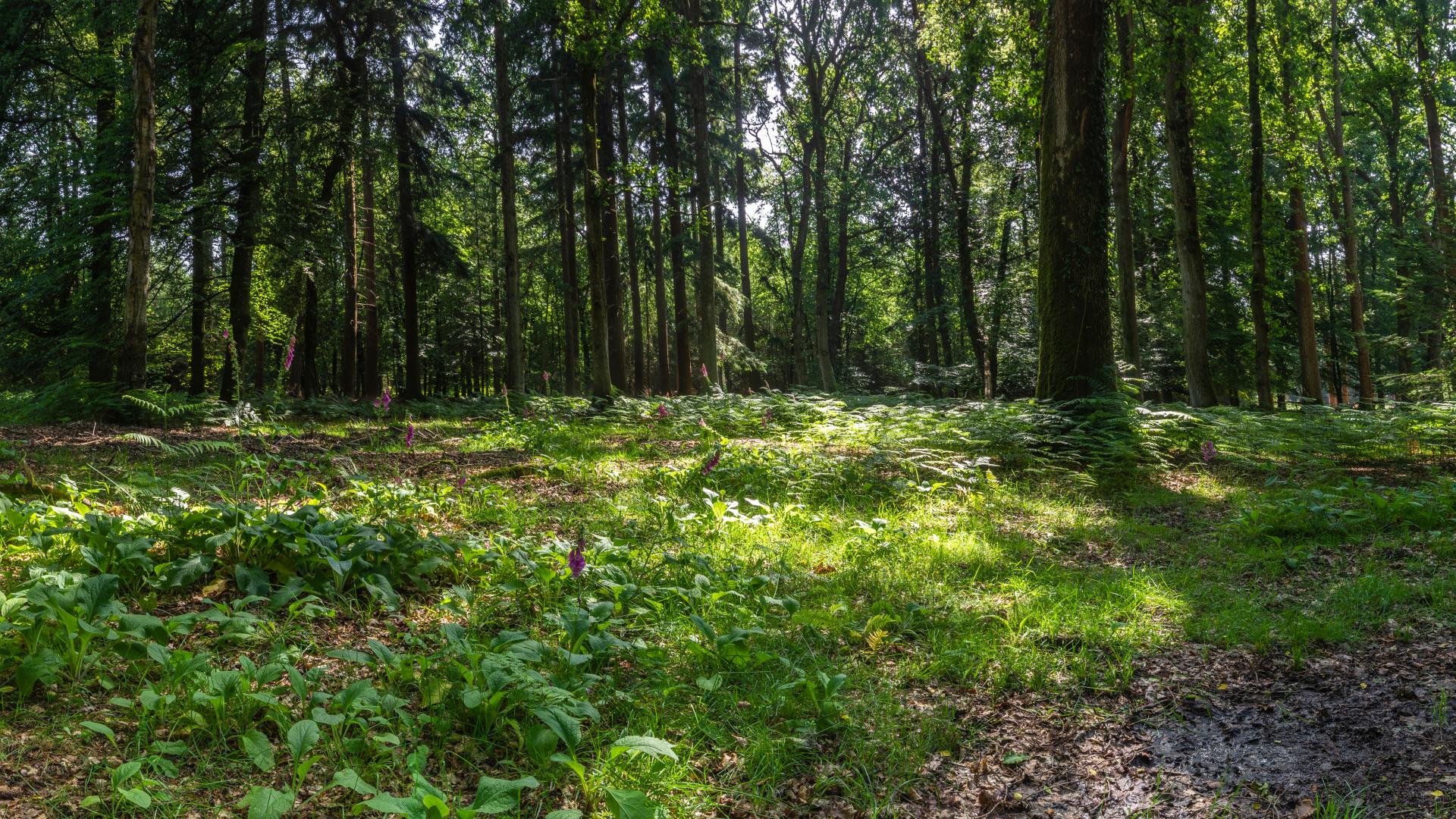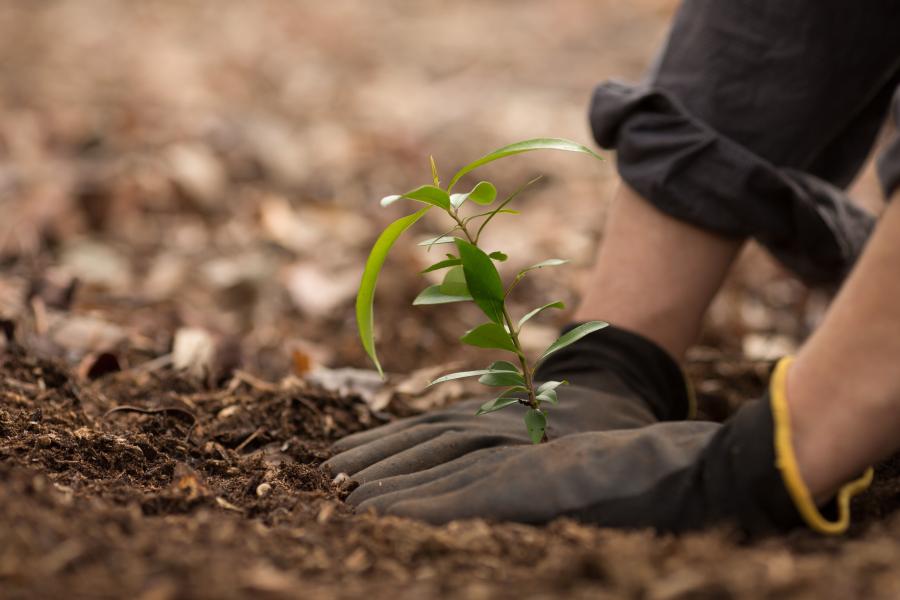About This Course
Forests are the most biodiverse of all terrestrial ecosystems and contain the vast majority of the world’s species. This degree provides an understanding of this biodiversity, the ways in which it is influenced by people, and the role that forests can play in reducing the impacts of human activities, including climate change. You will focus on the principles of biological conservation, forest ecology and forest ecosystem function, and the management of forests to meet conservation objectives. There are opportunities to study abroad in the second year.. Located in beautiful North Wales, you will enjoy learning through a combination of lectures, seminars, workshops and practicals, as well as site visits to a diverse range of woodlands, forests and other habitats.
This degree is accredited by the Institute of Chartered Foresters and gives partial fulfilment of Professional Membership Entry. We will also pay for your first year’s student membership to the Institute of Chartered Foresters. We run week long field courses in every year of this degree, enabling you to spend time outside honing your site observation and data collection skills from the very start of the degree.
Our extensive local, national and international networks and our active research programmes allow us to deliver high quality teaching which addresses cutting-edge issues, . We work closely with, and introduce students to, organisations such as Natural Resources Wales, Forestry Commission, Woodland Trust, Forest Research, the Institute of Chartered Foresters, Woodland Heritage, National Trust and many others.
Our students and academic staff are active collaborators with international organisation such as the Tropical Agricultural Research and Higher Education Center, Costa Rica (CATIE), the Center for International Forestry Research, Indonesia (CIFOR), the World Agroforestry Centre (ICRAF) and the International Forestry Students’ Association (IFSA).
We own 82 hectares of woodland, many semi natural, which are used for teaching, student projects and research. The University farm is also host to a range of forestry and land-use research experiments that provide excellent teaching and learning resources.
Why choose Bangor University for this course?
- We are in an ideal location for study, close to ancient seminatural woodlands and other sites of conservation importance.
- We own 82 ha of woodland, many seminatural, which are used for teaching.
- Years 1 and 2 - week-long field courses.
- We have local, national and international links with a variety of governmental agencies and NGOs who are actively working on conservation projects and issues.
- Free first year of student membership of the Institute of Chartered Foresters.
Additional Course Options
This course is available with a Placement Year option where you will study for 1 additional year. The Placement Year is undertaken at the end of the second year and students are away for the whole of the academic year.
The Placement Year provides you with a fantastic opportunity to broaden your horizons and develop valuable skills and contacts through working with a self-sourced organisation relevant to your degree subject. The minimum period in placement (at one or more locations) is seven calendar months; more usually you would spend 10-12 months with a placement provider. You would normally start sometime in the period June to September of your second year and finish between June and September the following year. Placements can be UK-based or overseas and you will work with staff to plan and finalise the placement arrangements.
You will be expected to find and arrange a suitable placement to complement your degree and will be fully supported throughout by a dedicated member of staff at your academic School and the University’s Careers and Employability Services.
You will have the opportunity to fully consider this option when you have started your course at Bangor and can make an application for a transfer onto this pathway at the appropriate time. Read more about the work experience opportunities that may be available to you or, if you have any questions, please get in touch.
This course is available with an International Experience Year option where you will study or work abroad for 1 additional year. You will have ‘with International Experience’ added to your degree title on graduating.
Studying abroad is a great opportunity to see a different way of life, learn about new cultures and broaden your horizons. With international experience of this kind, you’ll really improve your career prospects. There are a wide variety of destinations and partner universities to choose from. If you plan to study in a country where English is not spoken natively, there may be language courses available for you at Bangor and in your host university to improve your language skills.
You will have the opportunity to fully consider this option at any time during your degree at Bangor and make your application. If you have any questions in the meantime, please get in touch.
Read more about the International Experience Year programme and see the studying or working abroad options on the Student Exchanges section of our website.
Course Content
On this degree you will study through a range of lectures, tutorials, seminars and fieldwork. Our courses are modular and optional modules in the 2nd and final year allow you to expand your studies into new areas or develop specialisms that interest you.
What will you study on this course?
Years 1 and 2
The first year will provide you with an introduction to the ecological, economic and environmental principles on which conservation and forestry is based. In the second year you will develop your understanding of these principles and apply them to conservation and forestry practices. Subjects studied during the first two years include tree identification, site assessment, conservation practice, principles of conservation, environmental management, tree measurement, silviculture and inventory, forest and woodland management, data analysis and geographical information systems. By the end of the second year you will have acquired the knowledge and understanding needed for a sandwich placement year, should you wish to do one.
Year 3
In the third year, you will study unique modules in Wildlife Conservation and Forest Ecology, as well as undertake an independent research project (Honours Project) on a topic that interests you, under the supervision of an academic member of staff.
You can choose to write a conservation management plan that integrates the knowledge that you have acquired in the first two years for a landscape featuring significant areas of woodland, forest and other habitats. There are optional modules in environmental issues, environmental policy, renewable energy, advanced GIS and remote sensing, human aspects of conservation. You can also choose to go on a week-long field course in Tenerife, or a Tropical Conservation field course.
Studying this programme at Bangor, you will become part of a fantastic community of students and staff from across the world, as illustrated by this report from an international exchange student from Canada.
Modules for the current academic year
Module listings are for guide purposes only and are subject to change. Find out what our students are currently studying on the Conservation with Forestry BSc (Hons) Modules page.
Course content is for guidance purposes only and may be subject to change.
Facilities
Natural Sciences facilities
- Natural History Museum with an exceptionally comprehensive collection of vertebrate material, which includes a diverse collection of vertebrate and invertebrate specimens, including primates.
- Extensive marine and freshwater aquaria with a suite of temperature-controlled rooms.
- Pigeon loft for bird cognition, physiology, and biomechanics research.
- Treborth Botanic Garden, which covers an area of 18 hectares on the shores of the Menai Strait. It contains Europe's largest underground root laboratory (the rhizotron), a teaching laboratory, formal garden beds, a rock garden, an arboretum and a conservation collection.
- Rodent and reptile facilities.
- Our university farm based at Henfaes, about 7 miles from Bangor and totals 252 hectares. It provides facilities for research and teaching in lowland agriculture, forestry, hydrology, environmental science and conservation. We conduct fieldtrips and you can run your own large-scale experiment for your project.
- Alpaca, sheep and bee hives at the University farm at Henfaes.
- We are on the coast, next to the Irish Sea and the Menai Strait providing a range of habitat types for field courses and study sites for final-year projects.
- Dedicated reptile facilities including venomous snake rooms.
- Environmentally controlled spaces for project work.
- Insect rooms.
- Woodlands.
- Large modern teaching and research laboratories, and a dedicated student research hub for dissertation work.
- Imaging facilities.
- A very large range of analytical kit, so that you can learn how to analyse environmental samples both in the field and in the lab.
- Our very own geology collection – regarded as one of the best in the country.
- Computer laboratories for you to develop your skills in key areas such as digital mapping and environmental modelling.
- Wood library.
- Dedicated environmental research labs.
- One of our best facilities is the environment on our doorstep – you will get the chance to visit so many different places on our fieldtrips, which will cement your learning and understanding of topics.
- Our biological, chemical, and environmental laboratories are used for a range of teaching and learning. We have specific research-laboratories located in the Environmental Centre Wales, which include: a radio and stable isotope lab, a Category 2 pathogen lab, a darkened microscope room, sample preparation laboratories and a dedicated analytical instrument lab.
General University Facilities
Library and Archive Services
Our four libraries provide a range of attractive study environments including collaborative work areas, meeting rooms and silent study spaces.
We have an extensive collection of books and journals and many of the journals are available online in full-text format.
We house one of the largest university-based archives not only in Wales, but also the UK. Allied to the Archives is the Special Collections of rare printed books.
Learning Resources
There is a range of learning resources available, supported by experienced staff, to help you in your studies.
The University’s IT Services provides computing, media and reprographics facilities and services including:
- Over 1,150 computers for students, with some PC rooms open 24 hours a day
- Blackboard, a commercial Virtual Learning Environment, that makes learning materials available on-line.
Course Costs
General University Costs
Home (UK) students
- The cost of a full-time undergraduate course is £9,000 per year (2021/22 entry and 2022/23 entry).
- The fee for all placement, international, and sandwich years is £1,350 (2021/22 and 2022/23).
- More information on fees and finance for Home (UK) students.
International (including EU) students
Additional Costs
There are also some common additional costs that are likely to arise for students on all courses, for example:
- If you choose to study abroad or take the International Experience Year as part of your course.
- If you attend your Graduation Ceremony, there will be a cost for gown hire (£25-£75) and cost for additional guest tickets (c.£12 each).
Course-specific additional costs
Depending on the course you are studying, there may be additional course-specific costs that you will be required to meet. These fall into three categories:
- Mandatory Costs: these are related to a particular core or compulsory module that you’ll be required to complete to achieve your qualification e.g. compulsory field trips, uniforms for students on placement, DBS Check.
- Necessarily Incurred Costs: these may not be experienced by all students, and will vary depending on the course e.g. professional body membership, travel to placements, specialist software, personal safety equipment.
- Optional Costs: these depend on your choice of modules or activity and they are shown to give you an indication of the optional costs that may arise to make sure your choice is as informed as possible. These can include graduation events for your course, optional field trips, Welcome Week trips.
Entry Requirements
Offers are tariff based, 88 - 120 tariff points from a Level 3 qualification* e.g.:
- A Levels: Including grade C in a science subject at A2 level (e.g. Biology, Geography, Geology, Environmental Sciences/Studies, Chemistry, Physics, Maths, Economics, Statistics, Psychology). Key Skills and General Studies not accepted.
- International Baccalaureate Diploma (including H5 in a science subject)
- Access: Science/Environmental-based Access course
- BTEC National Extended Diploma: MMM-DDM in a relevant subject (e.g. Countryside Management, Applied Science, Forestry & Arboriculture, or Animal Management)
- City & Guilds Advanced Technical Extended Diploma (1080): MMM-DDM in a relevant subject (e.g. Countryside Management, Forestry & Arboriculture, Land & Wildlife Management)
- Welsh Baccalaureate is accepted
- Cambridge Technical Extended Diploma in Applied Science or Laboratory Skills**: MMM-DDM
- T-levels: considered on a case-by-case basis
- Extended Project Qualification: Points can include a relevant Extended Project (EPQ) but must include a minimum 2 full A-levels, or equivalent.
We are happy to accept combinations of the qualifications listed above, as well as alternative Level 3 qualifications such as City & Guilds, Access and Cambridge Technical Diplomas.
We also welcome applications from mature learners.
International Candidates: International Candidates: school leaving qualifications that are equivalent to A levels/Level 3 and/or college diplomas are accepted from countries worldwide (subject to minimum English Language requirements). More information can be found on our International pages.
*For a full list of accepted Level 3 qualifications, go to www.ucas.com.
**Similar subject areas may be considered on a case-by-case basis.
General University Requirements
To study for a degree, you’ll be asked for a minimum of UCAS Tariff points. For a fuller explanation of the UCAS Tariff Points, please see www.ucas.com.
We accept students with a wide range of qualifications and backgrounds and consider each application individually.
All students need to have good basic skills and the University also values IT and communication skills.
As part of the University’s policy, we consider applications from prospective disabled students on the same grounds as all other students.
We also consider applications from mature students who can demonstrate the motivation and commitment to study a university programme. Each year we enrol a significant number of mature students. For more information about studying as a mature student, see our Studying at Bangor section of the website.
EU and International Students' Entry Requirements
For detailed guidance on the entry requirements for EU and International Students, including the minimum English Language entry requirement, please visit the Entry Requirements by Country pages. International applicants can also visit the International Education Centre section of our website for further details.
Bangor University offers International Incorporated Bachelor Degrees for International students whose High School qualification is not equivalent to the UK school leaving qualification. The first year (or Year 0) is studied at Bangor University International College, an embedded College on our University campus and delivered by Oxford International Education Group.
Careers
Employers are always looking for graduates who are self-motivated and enjoy working with people. A high proportion of our graduates find a conservation and/or forestry-related job within six months of graduation, and are employed by public, private and non-governmental organisations both in the UK and overseas. Our unique history, reputation and teaching excellence in the subject areas of Conservation and Forestry makes Bangor graduates highly employable.
Opportunities at Bangor
The University’s Careers and Employability Service provides a wide range of resources to help you achieve your graduate ambitions.
The Bangor Employability Award (BEA)
The BEA is a comprehensive online course that you can work through at your own pace, taking you through all the steps you need to take to explore, prepare and apply for your dream career.
Internships
Bangor University runs a paid internship scheme within the university’s academic and service departments.
Student Volunteering
Volunteering widens your experience and improves your employability. Find out more about volunteering on the Students’ Union’s website.
Foundation Year
A 'with Foundation Year' option is available for this course. Apply for Environmental Science (with Foundation Year).
What is a Foundation Year course?
If you don’t have the required qualifications for the degree-level course or are looking to re-enter education after time away from study, then a Foundation Year Programme might be the right choice for you.
The Foundation Year is an excellent introduction to studying this subject at university and will provide you with the knowledge, skills and confidence required to go on to study this course at degree-level.
When you have successfully completed the Foundation Year, you can progress on to the first year of this degree-level course.






